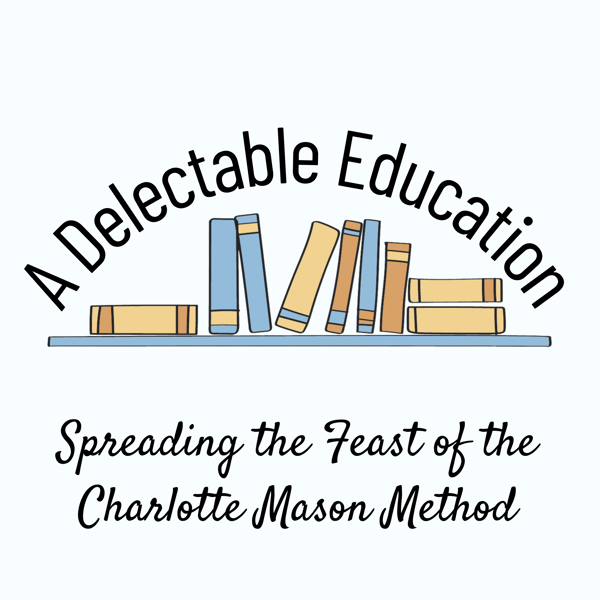Episode 19: History Q&A
A Delectable Education Charlotte Mason Podcast
Nicole Williams
5 • 1K Ratings
🗓️ 5 February 2016
⏱️ 28 minutes
🧾️ Download transcript
Summary
Our discussions on the subject of history resulted in an onslaught of questions. This podcast episode slowly and carefully addresses the most common and frequently asked history concerns, misunderstandings, and points of confusion we have received about Charlotte Mason's approach to teaching this subject.
Listen Now:
If you are seeing this message, please make sure you are using the most current version of your web browser: Internet Explorer 9, Firefox, Chrome


"We introduce children as early as possible to the contemporary history of other countries as the study of English history alone is apt to lead to a certain insular and arrogant habit of mind." (Vol. 6, p. 175)
"The flowers, it is true, are not new; but the children are; and it is the fault of their elders if every new flower they come upon is not to them a Picciola, a mystery of beauty to be watched from day to day with unspeakable awe and delight." (Vol.1, p.53)

Colonial Living, Edwin Tunis

Frontier Living, Edwin Tunis

Our Island Story, H.E. Marshall

Winston Churchill and the Story of Two World Wars, Olivia Coolidge

Most Gracious Majesty: The Story of Queen Elizabeth II, Elinor Parker

The Battle of Britain, Quentin Reynolds
 The Story of Edith Cavell, Iris Vinton
The Story of Edith Cavell, Iris Vinton
(Contains affiliate links)

Check out Leah Boden's Periscope, The Charlotte Mason Show
Transcript
Click on a timestamp to play from that location
| 0:00.0 | The Oh, Welcome back to a delectable education, the podcast that spreads the feast of the Charlotte Mason method. |
| 0:36.0 | We've been discussing Bible and geography in our last couple episodes and we have been getting a lot of listener questions. |
| 0:44.0 | So we thought we would do another question and answer |
| 0:46.9 | episode today and we're going to focus all on history because we are getting |
| 0:51.8 | tons of questions about the history rotations that we talked about back in episode 12. If you |
| 0:57.9 | haven't listened to that one you might want to pop back there before you |
| 1:01.3 | listen to this Q&A. And if you haven't gotten a chance to check out our show notes for episodes 12 and 14 |
| 1:08.0 | especially that we talked about the history rotations and also the history books. I just wanted to let our |
| 1:14.0 | listeners know who haven't seen them yet that we have put up some charts that are |
| 1:18.4 | visual aids that help describe what we talked about in those episodes and there's a lot of comments from |
| 1:24.2 | listeners there and we've pulled some of our most common questions that we've |
| 1:28.4 | been asked about the history and we're going to address those on the |
| 1:31.3 | podcast today. |
| 1:32.8 | So Emily, one of the questions that we've received |
| 1:35.2 | is how we can study British history |
| 1:37.4 | along with American history when British history is obviously |
| 1:40.2 | so much longer than our history. Yeah, that is a common question that we've heard, and I've heard in mom as well in the library |
| 1:48.7 | over the last several years when we've talked about studying the same time period in history and starting with American. |
| 1:54.4 | But I think what is helpful to understand from the P&E programs that I looked at is |
| 1:59.5 | Stromat Mason really considered prior to a thousand a.d. to be unrecorded history of |
| 2:05.2 | Britain. I mean we have a lot more nebulous time there. We do know some |
| 2:09.0 | names but it's not linked to exact dates as much as, you know, more modern history. And so if you think about that, |
... |
Please login to see the full transcript.
Disclaimer: The podcast and artwork embedded on this page are from Nicole Williams, and are the property of its owner and not affiliated with or endorsed by Tapesearch.
Generated transcripts are the property of Nicole Williams and are distributed freely under the Fair Use doctrine. Transcripts generated by Tapesearch are not guaranteed to be accurate.
Copyright © Tapesearch 2025.


